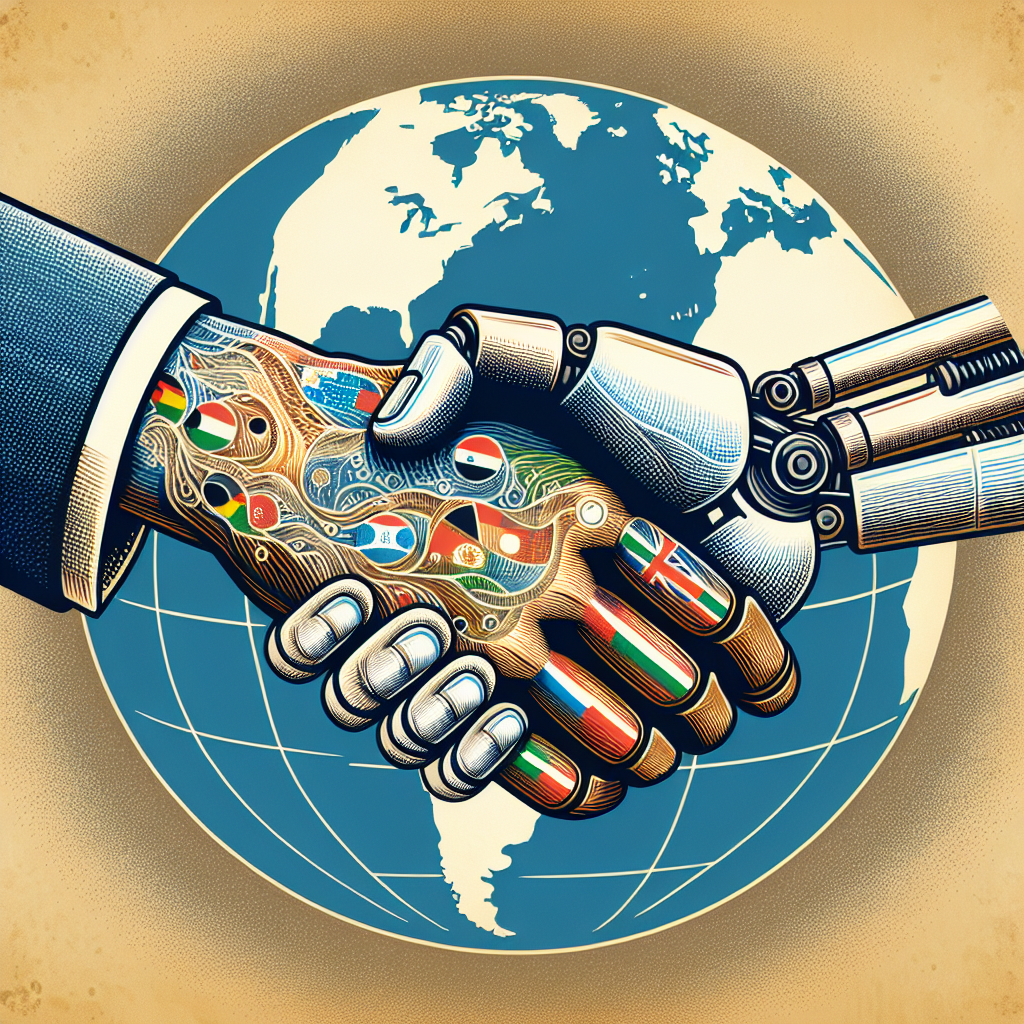As technology continues to advance at an unprecedented rate, the use of artificial intelligence (AI) has become more prevalent in various industries. One of the emerging trends in the field of AI is outsourcing, where companies hire third-party vendors to develop and manage AI systems on their behalf. While AI outsourcing offers many benefits, such as cost savings and access to specialized expertise, it also raises important ethical concerns that must be addressed.
The ethical implications of AI outsourcing are complex and multifaceted, touching on issues such as data privacy, bias and discrimination, accountability, and the impact on the workforce. In this article, we will explore these ethical challenges and discuss potential solutions to ensure that AI outsourcing is conducted in a responsible and ethical manner.
Data Privacy
One of the most significant ethical concerns surrounding AI outsourcing is data privacy. When companies outsource the development and management of AI systems to third-party vendors, they often have to share sensitive data with these vendors. This data may include personal information about customers, employees, or business operations, which must be handled with care to protect individuals’ privacy rights.
There is a risk that third-party vendors may not have robust data protection measures in place, leading to the potential misuse or unauthorized access of sensitive data. This could result in breaches of privacy and security, as well as legal and regulatory consequences for the companies involved.
To address these concerns, companies must carefully vet and select third-party vendors that have strong data protection policies and practices in place. They should also establish clear contractual agreements that outline the vendor’s responsibilities for protecting data and complying with relevant laws and regulations.
Bias and Discrimination
Another ethical concern related to AI outsourcing is the risk of bias and discrimination in AI systems. AI algorithms are trained on large datasets that may contain biases, such as gender or racial stereotypes, which can lead to discriminatory outcomes in decision-making processes.
When companies outsource the development of AI systems to third-party vendors, they may inadvertently perpetuate these biases if vendors do not take steps to identify and mitigate them. This can have serious implications for individuals who may be unfairly treated or discriminated against by AI systems.
To address this issue, companies should work with vendors to ensure that AI algorithms are tested for bias and discrimination before deployment. They should also implement mechanisms for ongoing monitoring and evaluation of AI systems to detect and correct any instances of bias that may arise.
Accountability
Another ethical challenge of AI outsourcing is the issue of accountability. When companies outsource the development and management of AI systems to third-party vendors, it can be challenging to determine who is ultimately responsible for the actions and decisions of these systems.
In cases where AI systems make errors or cause harm, it may be unclear where the accountability lies – with the company that outsourced the work, the vendor that developed the system, or the individuals who interact with the system. This lack of clarity can create legal and ethical challenges when determining liability and seeking redress for harms caused by AI systems.
To address this issue, companies should clearly define roles and responsibilities in their contractual agreements with third-party vendors. They should also establish mechanisms for monitoring and oversight to ensure that AI systems are developed and deployed in a responsible and accountable manner.
Impact on the Workforce
Finally, the use of AI outsourcing can have significant implications for the workforce, including concerns about job displacement and the quality of work. As companies increasingly rely on AI systems to automate tasks and make decisions, there is a risk that certain jobs may be eliminated or transformed, leading to unemployment or underemployment for some workers.
Moreover, the use of AI outsourcing may also raise questions about the quality of work performed by AI systems compared to human workers. There is a risk that AI systems may not be as reliable, accurate, or ethical as human workers, leading to potential negative consequences for individuals and society as a whole.
To address these concerns, companies should consider the impact of AI outsourcing on their workforce and take steps to mitigate any negative effects. This may include retraining and upskilling workers to adapt to new roles and responsibilities, as well as ensuring that AI systems are used in a way that complements and enhances human capabilities rather than replacing them.
In conclusion, the ethical implications of AI outsourcing are significant and require careful consideration by companies and policymakers. By addressing issues such as data privacy, bias and discrimination, accountability, and the impact on the workforce, companies can ensure that AI outsourcing is conducted in a responsible and ethical manner that benefits individuals and society as a whole.
FAQs
Q: What are some best practices for companies to ensure data privacy when outsourcing AI development?
A: Companies should carefully vet and select third-party vendors with strong data protection policies, establish clear contractual agreements outlining data protection responsibilities, and regularly monitor and evaluate data handling practices.
Q: How can companies address bias and discrimination in AI systems developed by third-party vendors?
A: Companies should work with vendors to test AI algorithms for bias and discrimination, implement mechanisms for ongoing monitoring and evaluation, and take steps to correct instances of bias that may arise.
Q: How can companies determine accountability for AI systems developed by third-party vendors?
A: Companies should clearly define roles and responsibilities in contractual agreements, establish mechanisms for monitoring and oversight, and ensure that AI systems are developed and deployed in a responsible and accountable manner.
Q: What steps can companies take to mitigate the impact of AI outsourcing on the workforce?
A: Companies should consider the impact of AI outsourcing on their workforce, retrain and upskill workers to adapt to new roles, and ensure that AI systems are used to complement and enhance human capabilities rather than replace them.

